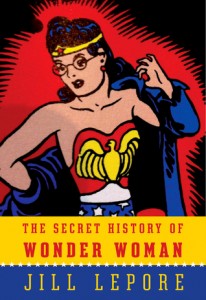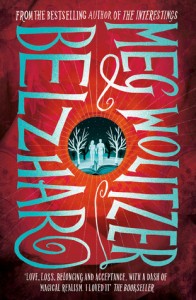 Title: Kim Jiyoung, Born 1982 (Goodreads)
Title: Kim Jiyoung, Born 1982 (Goodreads)
Author: Cho Nam-Joo
Translator: Jamie Chang
Published: Scribner, 2016
Pages: 163
Genres: Contemporary
My Copy: Paperback
Buy: Amazon, Book Depository, Kindle, Wordery (or visit your local Indie bookstore)
When you find a book that you want to share with everyone, and talk about constantly, you know you have found a new favourite. This is my experience with Kim Jiyoung, Born 1982 by Cho Nam-Joo, which has recently been translated from the Korean by Jamie Chang. I loved this novel so much, I re-read it, with only Breasts and Eggs by Mieko Kawakami (translated by Sam Bett & David Boyd) separating the two. While it makes for a great book pairing. Kim Jiyoung, Born 1982 follows an ordinary woman expressing her life to a psychiatrist. It is a very simple plot but allows Cho Nam-Joo to explore the everyday sexism woman face throughout their lives.
This is a novel exploring the gender inequalities facing women in South Korea today, but really this feels like issues facing women all around the world. While preparing to write this review, I saw the synopsis on GoodReads that started with “Kim Jiyoung is the most common name for Korean women born in the 1980s. Kim Jiyoung is representative of her generation.” This idea that it is a generational issue made me wonder, is the world getting better? Because the evidence of improvement is sadly lacking.
Kim Jiyoung is depressed.
Kim Jiyoung has started acting out.
Kim Jiyoung is her own woman.
Kim Jiyoung is insane.
I wanted to reference the above quote from the same synopsis because I think it is a reflection of the problems being faced in this novel. I am not a psychiatrist so I will not be diagnosing Kim Jiyoung in the review, but I will say that I disagree. She was sent to the psychiatrist by her husband and the book reads as a clinical assessment of the everywoman. Although I tend to think that both the husband and the psychiatrist are the problems, and not Kim Jiyoung. She might be suffering depression but then you have to diagnose all women with depression. She is not acting out; she is fighting to be heard and she is definitely not insane. Finally, why is Kim Jiyoung being her own woman a bad thing?
What I love is just how worked up I get while reading (or writing about) Kim Jiyoung, Born 1982. However, this is a reason while I have been told by a few women that they hated this book. I was told a few times “I don’t need to read this book, I’ve lived it” which is understandable, not everyone wants to read about the sexism they experience every day. This is the type of book all men need to read but I do worry that like the husband and the psychiatrist, they might miss the point.
We can talk about all the incidents that happen in this novel, but that would be the entire book. The ones that stick with me the most is start with an incident in school where a boy is picking on Kim Jiyoung and causes her to get in trouble with the teacher. Later the teacher apologised to her and told her that he picked on her because he liked her, which made no sense to Kim Jiyoung. Next there she was denied a promotion at work because they thought she will get pregnant and leave the company and finally the way her own husband pressured her into having a child. While these incidents in the novel might make you angry, these three moments stuck with me the most. There is no reason these three should stand out more than all the other issues, they just encapsulates the sexism women face in childhood, their work life and by loved ones.
Kim Jiyoung, Born 1982 is a quick read that really focuses on the everyday sexism that really needs to be stamped out. The novel references to some horrifying statistics facing women in South Korea, like the fact they are ranked 108th in the world in the Global Pay Gap Index, with women getting paid 67.2% of what men get paid. Australia is ranked 44th with women getting paid 73.1%, and Iceland has the best score but still women get paid 87.7% of what men get paid (I pulled these stats from the 2020 Global Gender Gap report put out by the World Economic Forum). This is a book that will stick with me for a long time, and I hope it helps myself and other men improve in the way we treat others around them, not just women but all genders.

 Title: Back to Moscow (
Title: Back to Moscow ( Title: Tom Houghton (
Title: Tom Houghton ( Title: World Gone By (
Title: World Gone By ( Title: Mislaid (
Title: Mislaid ( Title: Bad Nature, or With Elvis in Mexico (
Title: Bad Nature, or With Elvis in Mexico ( Title: Leaving Berlin (
Title: Leaving Berlin ( Title: The Secret History of Wonder Woman (
Title: The Secret History of Wonder Woman ( Title: Belzhar (
Title: Belzhar ( Title: You (
Title: You ( Title: The Know-It-All (
Title: The Know-It-All ( Title: The Suite Life (
Title: The Suite Life ( Title: Death in the Afternoon (
Title: Death in the Afternoon (